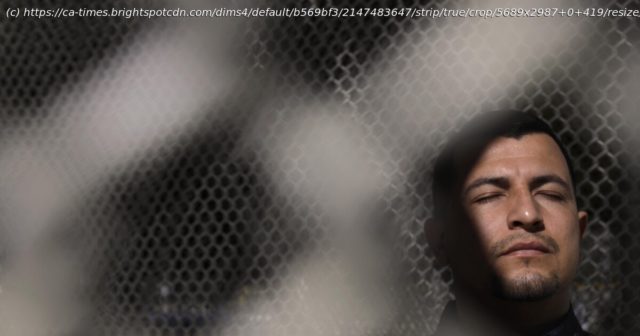Criminal justice advocates want the Legislature to revive a failed bill to eliminate juvenile offenses from California’s ‘three strikes’ law
Marco Flores was just 16 in 2007 when he and a group of friends attended a party in Pacoima, where an argument broke out and one of his friends shot and killed a man who was patting down guests for weapons. Flores, who said he wasn’t involved in the killing but fled the scene, was arrested with two co-defendants and charged with crimes including murder. He agreed to a plea deal with the Los Angeles County district attorney’s office to avoid the harshest possible sentence and to avoid going to trial in adult court. But prosecutors can use sentence enhancements to add time, including those allowed under California’s “three strikes” law, which was approved by voters in a 1994 ballot measure. Flores received 11 years for voluntary manslaughter, which was counted as a strike. His deal required him to admit to a separate crime — a robbery in which he was a suspect— that added a second, juvenile strike and doubled his sentence to 22 years. A gun enhancement added another decade. Another serious or violent felony could land Flores, now 30, in prison for the rest of his life. “I carry that I have two strikes with me,” Flores said. “I was just a kid. I wasn’t thinking right. I take full responsibility for my choices. But I feel like I still carry that with me.” Sentences like Flores’ are why criminal justice activists are lobbying the California Legislature to eliminate juvenile adjudications from the three-strikes law. They argue that the policy disproportionately affects youth offenders of color and fails to consider their brain maturity. Advocates also say that because juvenile adjudications aren’t handled in criminal court with the opportunity for a jury trial, they shouldn’t be used as sentence enhancements for adult felonies. Strikes are given for serious or violent felonies such as rape, murder, robbery and assault with a firearm. A prior strike can double the sentence of a second felony, even if it is not violent or serious, and a third strike could mean 25 years to life in prison. If a defendant who is at least 16 years old was previously found to have committed a crime as a juvenile — called an adjudication — that can also be considered a strike. Advocates saw their best hope to change California’s three-strikes law fizzle last month in the state Capitol, a result of opposition from moderate Democrats and a number of legislative vacancies that left supporters short on the votes needed for passage. Assembly Bill 1127 by Assemblymember Miguel Santiago (D-Los Angeles) would have prohibited juvenile adjudications from being considered a strike. It would have also applied retroactively, giving those serving a three-strike sentence with a juvenile adjudication a shot at resentencing.
Домой
United States
USA — Events Why efforts to scale back California’s ‘three strikes’ law for juveniles are...






